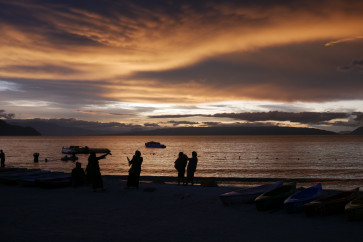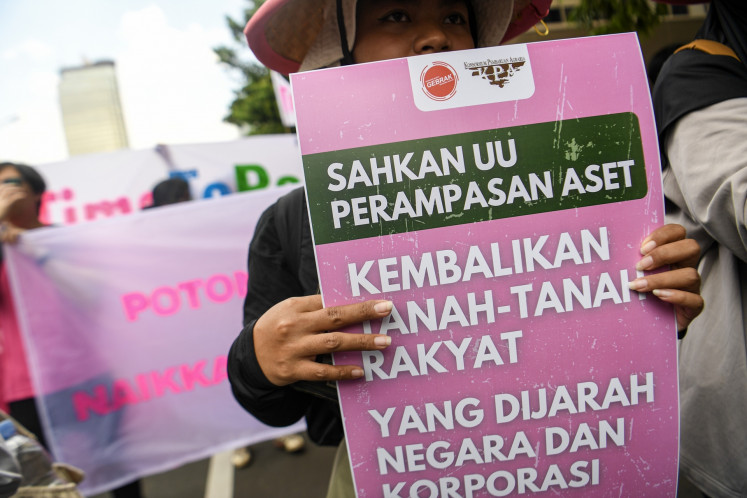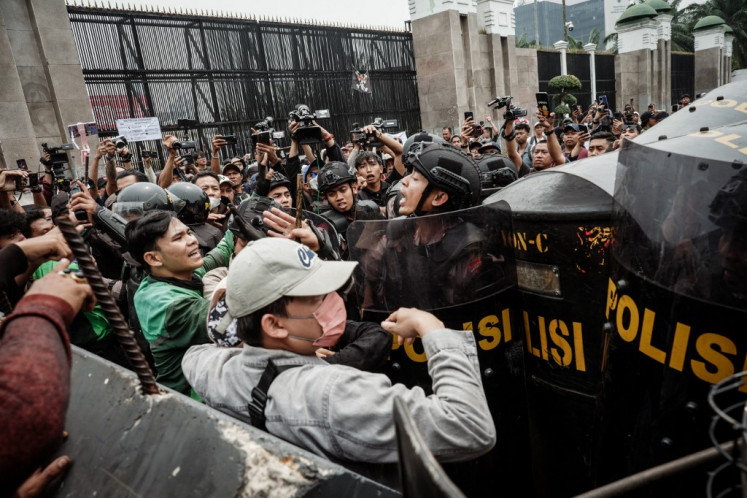Popular Reads
Top Results
Can't find what you're looking for?
View all search resultsPopular Reads
Top Results
Can't find what you're looking for?
View all search resultsWilmar accused of breaking deforestation agreement
A scientist has claimed that palm oil producer PT Wilmar Nabati Indonesia (WINA) has violated a deforestation agreement made by its parent firm, Wilmar International, by expanding the companyâs operations and damaging the environment in Balikpapan Bay
Change text size
Gift Premium Articles
to Anyone
A
scientist has claimed that palm oil producer PT Wilmar Nabati Indonesia (WINA) has violated a deforestation agreement made by its parent firm, Wilmar International, by expanding the company's operations and damaging the environment in Balikpapan Bay.
'Wilmar signed a zero-deforestation policy on Dec. 5, 2013. With the signing of the agreement, Wilmar was hailed as an environmentally friendly company,' said Stanislav Lhota, a primatologist and environmental researcher, in Balikpapan Bay on Sunday as quoted by Antara news agency.
In Balikpapan Bay, the researcher said, WINA had cleared mangrove forests to expand their land to build a crude palm oil (CPO) port and a CPO processing factory.
Zero deforestation is a policy aimed at not chopping down natural forests to make way for industrial plantations.
If plantation companies needed land either for industrial plantations or factory developments, they should not do it on natural forested land, such as primary mangrove forests in Balikpapan Bay, Lhota said.
The researcher added that Wilmar's reneging on the agreement would only incur losses for the company.
'If Wilmar continues to expand by damaging the environment in Balikpapan Bay, developed countries, which are the company's main export destinations, will reject its products because the US and European countries have adopted eco-labeling and zero-deforestation policies,' said Lhota, a researcher from the University of Life Sciences in Prague, the Czech Republic.
Lhota has researched primates, especially bekantan (Nasalis larvatus), in Balikpapan Bay for around 10 years.
Eco-labeling requires exporting countries to ensure that their products are environmentally friendly and the products must meet certain standards to be granted eco-label certification.
According to Lhota, Balikpapan Bay and the Kariangau industrial zone were being closely monitored by the international community due to WINA's destructive activities in the Berenga river basin area.
'WINA has damaged 27.1 hectares of forest around the Berenga Kanan River, most of which contained mangrove forests and protected areas,' Lhota said.
'WINA also plans to expand its industrial plantations onto mangrove forests. The firm has covered the upstream area of the Berenga Kanan River with piles of soil.'
'With its deforestation policy, Wilmar should not be adopting such an approach for its business expansion,' he said. (ebf)










